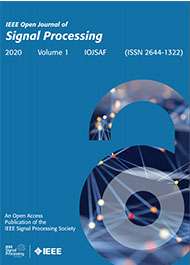Dif-MAML: Decentralized Multi-Agent Meta-Learning
Top Reasons to Join SPS Today!
1. IEEE Signal Processing Magazine
2. Signal Processing Digital Library*
3. Inside Signal Processing Newsletter
4. SPS Resource Center
5. Career advancement & recognition
6. Discounts on conferences and publications
7. Professional networking
8. Communities for students, young professionals, and women
9. Volunteer opportunities
10. Coming soon! PDH/CEU credits
Click here to learn more.
Dif-MAML: Decentralized Multi-Agent Meta-Learning
The objective of meta-learning is to exploit knowledge obtained from observed tasks to improve adaptation to unseen tasks. Meta-learners are able to generalize better when they are trained with a larger number of observed tasks and with a larger amount of data per task. Given the amount of resources that are needed, it is generally difficult to expect the tasks, their respective data, and the necessary computational capacity to be available at a single central location. It is more natural to encounter situations where these resources are spread across several agents connected by some graph topology. The formalism of meta-learning is actually well-suited for this decentralized setting, where the learner benefits from information and computational power spread across the agents. Motivated by this observation, we propose a cooperative fully-decentralized multi-agent meta-learning algorithm, referred to as Diffusion-based MAML or Dif-MAML. Decentralized optimization algorithms are superior to centralized implementations in terms of scalability, robustness, avoidance of communication bottlenecks, and privacy guarantees. The work provides a detailed theoretical analysis to show that the proposed strategy allows a collection of agents to attain agreement at a linear rate and to converge to a stationary point of the aggregate MAML objective even in non-convex environments. Simulation results illustrate the theoretical findings and the superior performance relative to the traditional non-cooperative setting.
Training of highly expressive learning architectures, such as deep neural networks, requires large amounts of data in order to ensure high generalization performance. However, the generalization guarantees apply only to test data following the same distribution as the training data. Human intelligence, on the other hand, is characterized by a remarkable ability to leverage prior knowledge to accelerate adaptation to new tasks. This evident gap has motivated a growing number of works on learning architectures that learn to learn (see [2] for a recent survey).
The work [3] proposed a model-agnostic meta-learning (MAML) approach, which is an initial parameter-transfer methodology where the goal is to learn a good “launch model”. Several works have extended and/or analyzed this approach to great effect such as [4]–[5][6][7][8][9][10][11]. Furthermore, some works used MAML for signal processing applications such as image segmentation [12], speech recognition [13], and demodulation [14]. However, there does not appear to exist works that consider model agnostic meta-learning in a decentralized multi-agent setting. This setting is very natural to consider for meta-learning, where different agents can be assumed to have local meta-learners based on their own experiences. Interactions with neighbors can help infuse their models with new information and speed up adaptation to new tasks.
SPS Social Media
- IEEE SPS Facebook Page https://www.facebook.com/ieeeSPS
- IEEE SPS X Page https://x.com/IEEEsps
- IEEE SPS Instagram Page https://www.instagram.com/ieeesps/?hl=en
- IEEE SPS LinkedIn Page https://www.linkedin.com/company/ieeesps/
- IEEE SPS YouTube Channel https://www.youtube.com/ieeeSPS











